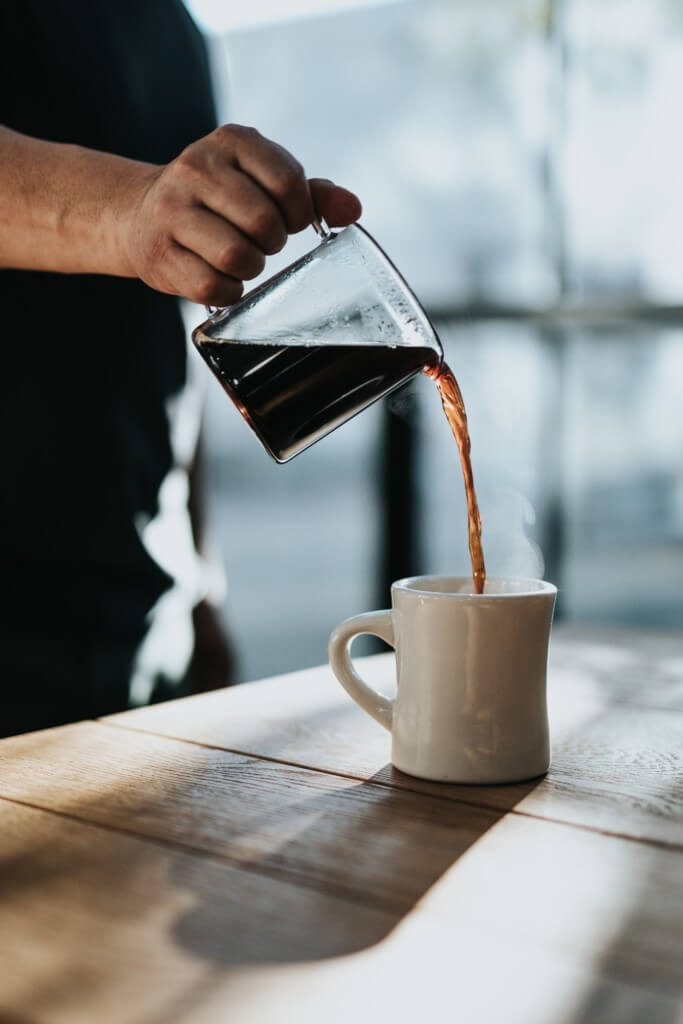I’ve realized that there’s something different about me, a secret that sets me apart from other college students. I’ve realized that I can do something I’ve never seen another student do. Sometimes I’m not sure anyone else is even capable of doing what I do. I feel like a freak sometimes. I’ve never shared my secret before, but I’m ready to tell the world now. Are you ready to hear it?
I don’t drink coffee, and I do just fine without it.
Okay, the work up to that reveal was cheesy and melodramatic. Sorry for raising your expectations. But coffee is supposedly one of the biggest parts of college. College students consume cups and cups of coffee every day. Great pain and misery come from lack of the sweet brown stuff. “We’d crash and burn without the college kids,” Starbucks employees whisper amongst themselves. “I’ll die if I can’t have coffee RIGHT NOW,” students growl as they lurch from their beds like Frankenstein’s monster with added bedhead.
How much coffee do college students really drink?

The first thing I wanted to find out was how much coffee college students actually drink. One of the most widely-cited sources on the topic, a study by the University of Kentucky, reports some impressive numbers. Of the 300 students the study questioned, 78 percent drank more than the recommended daily amount of coffee. The students often drank three to five times more than recommended.
I grabbed my clipboard and lab coat and headed out to the Pit, a brick courtyard that is the center of life at my college. I sidled up to unwitting students and asked them if they drank coffee, and their answers decided my approach.
Of the 20 students I approached, seven said they did not drink coffee at all. I noted these abstainers’ responses and moved on. I ultimately did full interviews with 10 coffee-consuming undergraduate students. Overall, one-third of my sample pool (those seven people) led coffee-free lives. This was a much higher percentage than I expected, and certainly higher than the Kentucky study found. As for the two-thirds who did drink coffee, most drank at least one cup per day. The average weekly coffee consumption was 6.5 cups, with the lowest and the highest individual weekly consumption being one and 28 cups respectively. In layman’s terms, I discovered:
- The great majority of college students consume coffee (so I’m still kind of feeling freakish).
- Among coffee-drinking students, consumption amount is all over the board. Some sip daintily, and some freakin’ pound down da coffee.
What’s Does Coffee Do to Our Bodies?

The University of Kentucky study noted that coffee can have some nasty drawbacks. Eighty-three percent of the students the study questioned said they had suffered symptoms of caffeine intoxication, like restlessness, sleeplessness and headaches, in the past. Fifty-one percent of the students experienced signs of caffeine withdrawal (such as fatigue, headaches and cravings).
Of the 10 coffee-drinkers I interviewed, seven reported feeling fatigued if deprived of coffee. As a general rule, the more coffee they drank, the worse their symptoms became without it.
Sophomore Hateya Foxx, who only drinks one cup of coffee every week, said she had no problems without coffee. Eya Simpson, 20, who drinks three cups weekly, said her only issue without coffee was feeling “a little tired.” On the other end of the scale, Exercise and Sports Science major Alison Harris said she gets headaches and fatigue if she goes without a few of her 28 weekly cups.
How to Ditch Coffee

As someone who has never drunk coffee, I’ve found ways to cope without an infusion of caffeine. My main tips are easy: Read and walk.
Like the entire population of college students worldwide, I usually would prefer going back to sleep to getting out of bed. To make sure I don’t close my eyes and drift away, I grab my phone and pull up the New York Times.
I chose the news for a reason: it’s intellectual (although most of the news nowadays is of the oh God what did Trump do now sort), and it forces my brain to think and wake up. After a few minutes of reading, I roll out of bed and walk down the hallways of my dorm.
The physical activity places a demand on my body and kickstarts it. After a few turns up and down the hall, I feel awake and ready to start moving for real.
But coffee drinkers need more to kick the caffeine cravings. Slowly decrease the amount of coffee you drink over going cold turkey. That’ll hopefully curb the headaches, jitters and cravings by reducing consumption by say, a cup a week, or by substituting decaf for some of your regular amounts.
You can also opt to try decaf or tea. Apps like the Caffeine Zone give personalized advice on when to drink coffee and how to lower your consumption.
Different strategies will work for different people. Be willing to try multiple techniques, and don’t get discouraged if one thing doesn’t help you cut down on your coffee.
But most of all, know that it is possible to control your coffee consumption. I’m proof that life at college doesn’t need to revolve around—or even include—coffee to succeed.



















